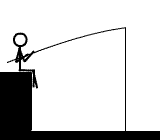Simon 13th
Member
- Joined
- Mar 18, 2021
- Messages
- 95
- Likes
- 8
I enjoyed the chat the other day and didn’t want to repeat it but just wondered, has anyone ever done a valid ABX test on here of components that a person will say they can hear differences between.
I’m talking about someone who has listened to the gear in sighted tests, Knows the hifi, the room and puts the ABX test to the test.
Most of the ones online are pretty poor, no Controls, unscientific. Etc.
I’m talking about someone who has listened to the gear in sighted tests, Knows the hifi, the room and puts the ABX test to the test.
Most of the ones online are pretty poor, no Controls, unscientific. Etc.

